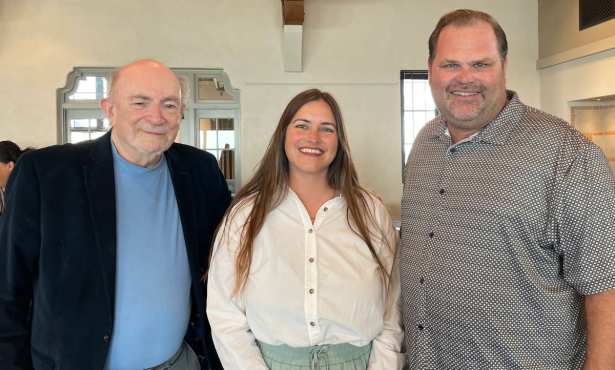The Civic Mission of Higher Education
How Universities Can Energize Civic Involvement
By Joy Pedersen
 “A morally and civically responsible
“A morally and civically responsible
individual recognizes himself or herself as a member of a larger
social fabric and therefore considers social problems to be at
least partly his or her own; such an individual is willing to see
the moral and civic dimensions of issues, to make and justify
informed moral and civic judgments, and to take action when
appropriate.” —Thomas Ehrlich, Civic Responsibility and Higher
Education
The 2006 elections are drawing to an end, and as Californians we
have little time left to educate ourselves on the issues. According
to a study published by the Public Policy
Institute of California in 2004, voter turnout in California is
lower than in the rest of the United States. With a large minority
population, California needs to invest in public education so that
more Californians have the skills needed to move up the economic
ladder and participate in the civic and political life of the
state.
Early American universities were established with a civic
mission: to prepare students to be morally and civically
responsible citizens in a democratic society. According to Thomas
Jefferson, the purpose of higher education is to “form statesmen,
legislators, and judges, on whom public prosperity and individual
happiness are so much to depend.” Many early institutions, such as
University of Virginia that Jeferson founded in 1825, were part of
the building of our new nation and took seriously their role in
shaping a democratic society.

During the 20th century, large universities shifted their focus
away from their civic mission towards a research agenda. Driven by
the threat of foreign power during the Cold War, federal funds were
allocated for science research, national security, and
technological innovation. Federal funding during this era allowed
universities to provide vocational and professional instruction at
the cost of liberal education. As a result, faculty are often
rewarded for their research in narrowly defined specializations
within their academic departments and professional societies.
Meanwhile, today’s youth may be the most politically disengaged
in American history. Since the 1940s, there has been a documented
decline in political affiliations and voluntary association
memberships in each generation. According to the National
Commission on Civic Renewal, social scientists have reported a
decline in voting in elections, attendance at community meetings,
and involvement in volunteer activities. This decline has
accelerated since 1985.

In a study examining 12 civic activities, participation declined
by an average of 10% between 1973-1974 and 1983-1984, and by 24%
between 1983-1984 and 1993-1994. Robert Putnam, author of
Bowling Alone: The Collapse and Revival of American
Community, claims the share of Americans totally
uninvolved in any of the 12 civic activities rose by nearly
one-third over those 10 years.
What can be done to address the civic mission of higher
education? Of the many strategies, community-based research and
service learning are two prominent trends. Community-based research
blends the research agenda and the civic mission of the university
by involving students in research projects that address social
issues. An increased number of faculty are partnering with
non-profit community agencies to produce research that benefits
communities, students, and the university.
Another approach is service learning. Service learning occurs
when faculty include a community service component in their course
curriculum. Students experience enhanced learning outcomes because
their in-class learning is reinforced through experiential learning
and reflection.
There are many other strategies for civic renewal that merit
attention, but most importantly, institutions of higher education
need to commit to making their civic mission a priority. Unless
American higher education reconsiders its responsibility and role,
we will have to find other means of instilling civic values in our
future leaders.
Joy Pedersen is a doctoral candidate in the Educational
Leadership and Organization Emphasis of the Department of Education
at UC Santa Barbara’s Gevirtz School.



